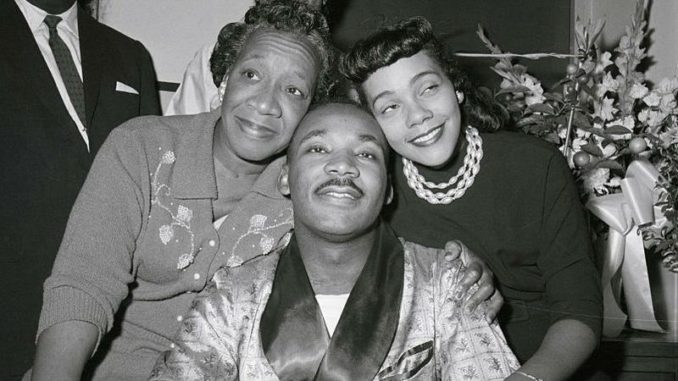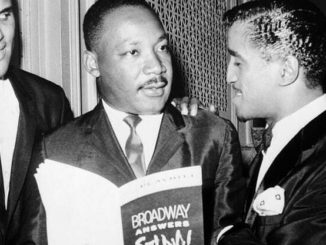
Exactly 92 years after the birth of iconic activist Dr. Martin Luther King Jr., the United States is still grappling with racism and evolving from its horrid slavery beginnings. There have been so many instances where we thought that the social striving with racism was over.
One of those moments in recent memory was in 2009 when Barack Obama became the first Black president, an emotional victory for many Baby Boomers and Generation Xers who thought they would never see the day and a rightful correction of the past for millennials who were, quite frankly, over the petty raced-based rift in America. While his two-term leadership was inspiring, it also disrupted a plethora of angry citizens that just did not want to comply with this new America, a place where equality and equity could literally be anyone’s in spite of sex, gender, race, religion, economic background and more.
Although the issue of police brutality was always a topic of conversation in Black and Brown communities, the masses became more aware because of Obama being in office and social media being the new form of the all-seeing big brother. Before Obama was in office, the biggest name thrown around to refer to police brutality was Rodney King, a Black man that was brutally beaten by four Los Angeles Police Department officers who were initially not found guilty, sparking the LA riots of 1992.
The names would increase to include John T. Williams, Philando Castile, Michael Brown, Jacob Blake, Tamir Rice, Eric Garner, Sandra Bland and so many more. It was becoming more apparent that having a Black president in office was indeed disruptive to the status quo of an overtly racist society, and that there was still much more work to do.
Overturning an entire system based on an existence where racism, discrimination and human cruelty is embedded in the very foundation of so many of the United States’ structural makeup wasn’t going to be an easy feat. However, no one would have ever thought that 2020 would look like the 1960s.
King sacrificed his life to fight against these social injustices, and he did it in the most civil way possible. The Ebenezer Baptist Church reverend, along with a group of commendable believers, were able to lead several non-violent movements, reverse Jim Crow laws, gain voting rights for ignored Americans, and work toward social change. His efforts contributed to the formation of the Civil Rights Act of 1964, ending segregation and officially prohibiting discrimination in labor law, public education, federally assisted programs, and public accommodations.
Yet, even after all these years, some people have reduced Dr. King’s legacy to a holiday that gives them a day off or to him simply being a historic figure that is good for entertainment value. The lack of respect for his life and legacy by the very people who benefitted from his efforts the most is one of the reasons why America is still hopscotching with the same issues from Dr. King’s time. Sure, we can all apply to any college or job, and be a apart of the voting process, but that doesn’t mean that the human resource personnel doing the hiring is not utilizing their personal bias and prejudice, or that everyone will use their right to vote.
So, the question is, are we better? Can we all co-exist in this world without the constant need to oppress another group of people to make ourselves feel better? These are difficult questions to answer. The new wave of social inequality is playing out across social media algorithms that clearly discriminate and the tools that place us in the mindset of needing validation through likes, views and followers all for the sake of seeming better than others.
It would be amiss to not recognize that there have been positive developments since Dr. King’s imprint on the world. Protestors are no longer predominately Black or confined to the south, but now include more White people than Black people and extend beyond the parameters of the United States, as we all witnessed in the 2020 protests.
Corporations and organizations are slowly recruiting diverse talent to lead their companies and contributing millions of dollars to causes that breakdown systemic racism. Black women have climbed the ranks in education and trail-blazed many paths in the professional field. Interracial relations are now a more common occurrence, and recent times have produced more Black millionaires than any other time in history. In a few days, we will have the first female vice president of Black descent in office.
If Dr. King is watching over us, he has much to be proud of — but again, we still have a lot of work to do.



